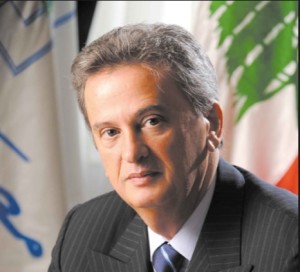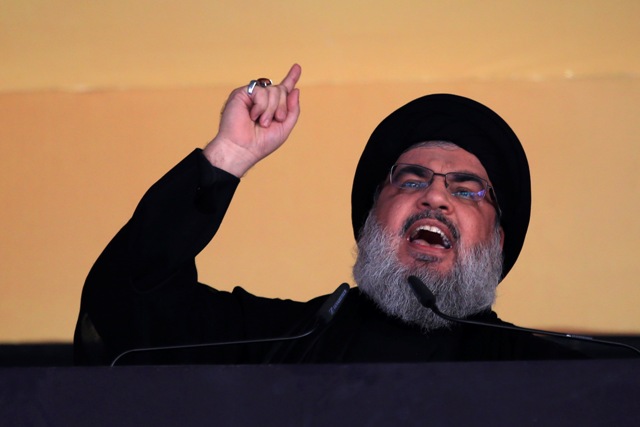In what appears to be a response to the Hezbollah International Financing Prevention Act, a US law which aims to sanction international financial institutions that knowingly facilitate Hezbollah’s activities, the Banque du Liban has announced it will comply.
By: JNS.org and World Israel News Staff


Riad Salameh, governor of Lebanon’s central bank. (BDL)
The head of the powerful Banque du Liban (BDL), Lebanon’s central bank, said that he will comply with a United States finance law that targets the Lebanese Hezbollah terror organization.
Last December, the US government passed the Hezbollah International Financing Prevention Act, which aims to sanction international financial institutions that knowingly facilitate Hezbollah’s activities.
The US bill seeks to “prevent Hezbollah’s global logistics and financial network from operating in order to curtail funding of its domestic and international activities,” and to “utilize diplomatic, legislative, and executive avenues to combat Hezbollah’s criminal activities in order to block that organization’s ability to fund its global terrorist activities.”
Hezbollah denounced the bill when it was passed by the Senate, describing the decision as a “crime” against it and all liberals in the world.
“The US law has to be implemented worldwide and in Lebanon,” said Riad Salameh, governor of Lebanon’s central bank, according to a report by Reuters. “It is not possible to guarantee credit stability if [the central bank] does not implement the US law.”
“If we do not do that…our banking sector could become isolated from the world,” he said.
Lebanon’s banking sector, which accounts for 6 percent of the country’s gross domestic product (GDP), is one of the few institutions within Lebanon that is not dysfunctional or corrupt.
Lebanese banks have begun to close accounts of Hezbollah officials and their family members, and it has been reported that dozens such accounts have already been closed.
Hezbollah reacted with a campaign of severe criticism against Salameh and the Lebanese banking system, accusing them of “surrender[ing] to the American financial mandatory authority in Lebanon and warning that this would bring about the collapse of Lebanon’s currency and lead to “complete chaos” in the country. Hezbollah ministers charged the banks with “crossing every red line,” and other Hezbollah members leveled threats against the banks.
These reactions clearly indicate the scope of Hezbollah’s fears about the US law and its ramifications. It should be noted that in recent months Hezbollah has also been the target of sanctions by the Gulf states and several other Arab countries, which have designated it a terror organization and have begun expelling its operatives from their countries, the Middle East Media Research Institute (MEMRI) explained.
On May 14, the Lebanese daily Al-Nahar quoted sources in the Hezbollah-headed March 8 Forces as saying that the organization would not remain silent about the new guidelines released by Salameh, and that it would not back down from its demand that they be cancelled.
This move against Hezbollah’s finances comes as its senior military commander, Mustafa Amine Badreddine, was killed in Syria, reportedly by Syrian rebel shelling.

